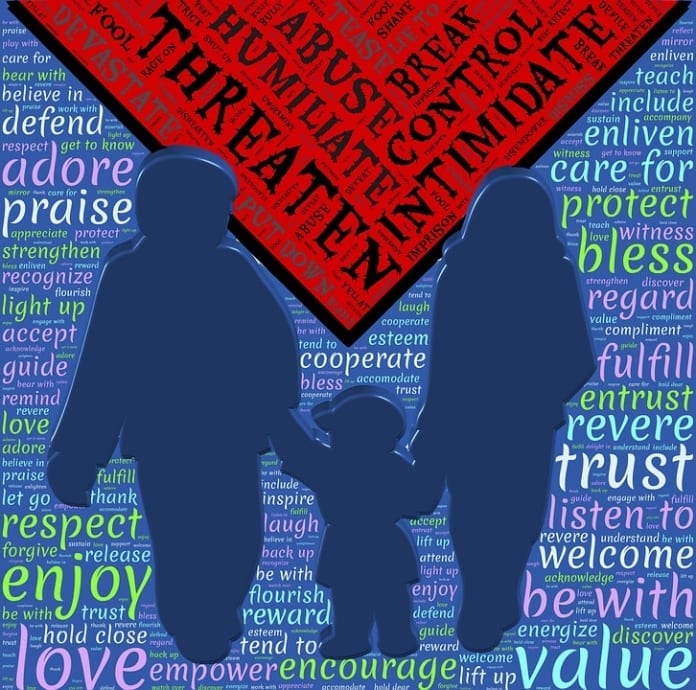- Three Welsh charities are calling for the Welsh Government to fully protect and support children growing up in abusive households.
- In 2015, the Welsh Government passed the VAWDASV (Wales) Act which included, in its scope, the recognition of children as victims of domestic abuse.
- In 2017/18, 1,065 children and young people in Wales under the age of 16 were supported in refuge provision.
- In the same period, 332 children in Wales receiving counselling sessions from Childline on the issue of domestic violence.
- The NSPCC launched ‘Rory’s story’ at the Senedd event, a real-life experience of a young Welsh boy growing up in an abusive household.CHILDREN in Wales NSPCC Cymru/Wales and Welsh Women’s Aid have appeared at the Welsh Assembly to urge politicians to fully protect children from the appalling impact of domestic abuse in the home.
- Wednesday 6 February
Although the Domestic Abuse Bill for England and Wales does not class children growing up in violent homes as victims of abuse, Welsh Government legislation has classed children growing up in abusive households as victims since 2015 when the Violence against Women, Domestic Abuse and Sexual Violence (VAWDASV) (Wales) Act came into effect.
But despite this, the three charities today (6 February) told Assembly Members that far better support remains necessary for young people growing up in abusive and violent circumstances.
Figures from Welsh Women’s Aid suggest that in 2017/18, more than 1,000 children aged under 16 years of age were supported in refuge provision – a year-on-year rise of 14 per cent.
In the same year the NSPCC’s Childline counselling service spoke to more than 300 children from Wales to offer advice and support on the issue of domestic violence.
Both Children in Wales and Welsh Women’s Aid have labelled the funding provision for children and young people suffering the impact of domestic abuse as insufficient with services patchy and inconsistencies in different parts of the country.
‘Rory’, from Cardiff, grew up in a home blighted by serious domestic abuse in which led him into depression and wanting to take his own life.
He said: “Everyone who met him, all the teachers loved him, all my friends thought he was a wicked dad, so whenever I was around him with anybody else he was perfect until he wasn’t being watched by somebody.
“He was going to kill both my mum and my little sister and then wait for me to get home and kill me.
“Luckily enough my auntie had walked in through the door. She just saw on the kitchen floor, well he was strangling my mum in one hand and my little sister in the other.
“The police were phoned and he was arrested and we were set free.”
David Melding, the South Wales Central AM and acting chair of the children and young people’s cross-party group added: “Rory’s story is a powerful and insightful account of parental domestic abuse and the mental and physical scars it leaves on its child victims.
“We owe Rory so much for speaking out with such clarity.
“His words will bring new energy to the campaign in Wales to better protect children from the impact of parental domestic abuse and the need to provide services to help these child victims recover from their experiences.”
Research carried out by Welsh Women’s Aid found that survivors of domestic abuse believed that dedicated specialist services for children and young people experiencing domestic abuse were not available in every area and that improved access to specialist children’s mental health services and counselling were needed.
NSPCC Cymru, Welsh Women’s Aid and Children in Wales have together called for:
- Dedicated services for children and young people who experience domestic abuse, including specialist services in every region of Wales.
- Local domestic violence strategies, with all local plans recognising that children and young people are directly affected by witnessing domestic violence.
- Improved prevention and early intervention, including mandatory healthy relationship education in the new school curriculum.
Vivienne Laing, NSPCC’s policy and public affairs manager for Wales, said: “As well as the day-to-day distress that living with domestic abuse creates for children, it can cause long-term problems into adulthood.
“It is vital that children and young people learn about healthy relationships in schools and know who to turn to for help.
“We are also calling for targeted services to be provided across Wales that understand the complex trauma children living with domestic abuse experience.
“For this to be done effectively we need children not only to be recognised as victims of this abuse, but to ensure they receive the help, services and support they need as survivors of these appalling circumstances.”
Gwendolyn Sterk, Welsh Women’s Aid’s public affairs manager, said: “Welsh Women’s Aid member services have led the way in delivering specialist support to children who are experiencing domestic abuse across Wales for decades.
“Children do not just witness domestic abuse, they experience it. Children have told us dedicated support provided by specialist services has enabled them to feel “happier”, “safer” and “less alone”.
“Despite this, the current provision for children affected by domestic abuse continues to be at the mercy of a postcode lottery.
“We need a sustainable funding model to support the availability of dedicated specialist services for children who experience domestic abuse across all of Wales.”
Catriona Williams OBE, the chief executive of Children in Wales, said: “The negative impact on children of suffering domestic abuse has long been known and yet there remains an unacceptable postcode lottery of services addressing their specific needs.”

| [donate]
| Help keep news FREE for our readersSupporting your local community newspaper/online news outlet is crucial now more than ever. If you believe in independent journalism,then consider making a valuable contribution by making a one-time or monthly donation. We operate in rural areas where providing unbiased news can be challenging. |

















